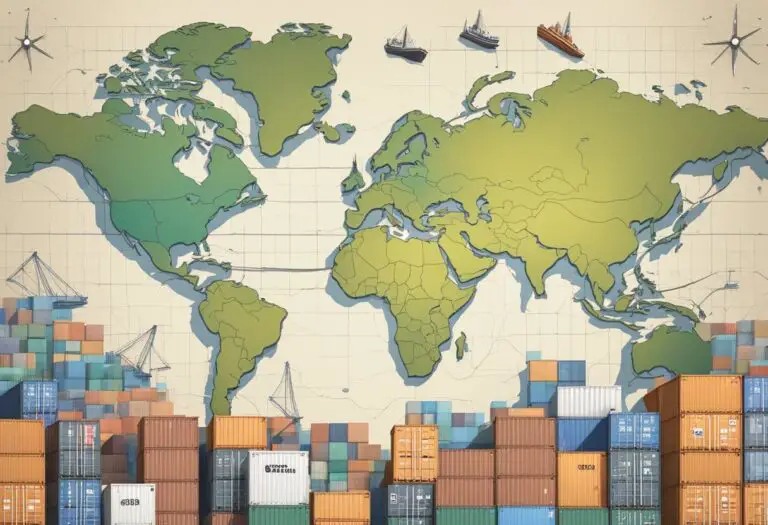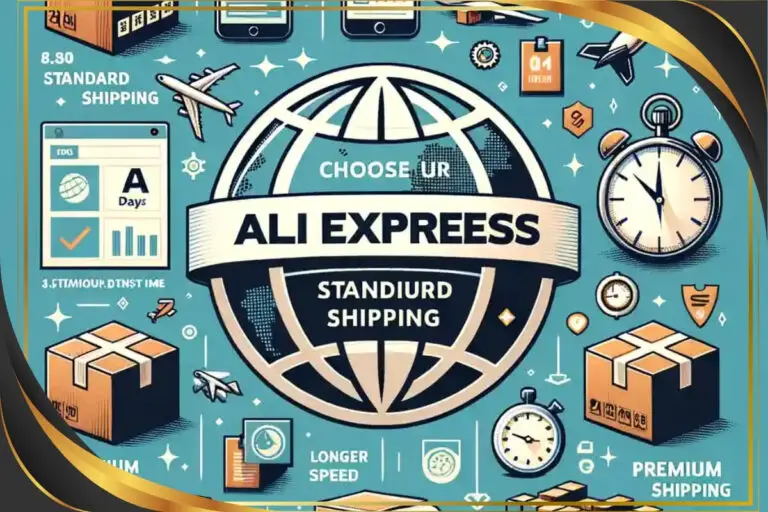Is It Safe to Order from AliExpress? Must Read!!
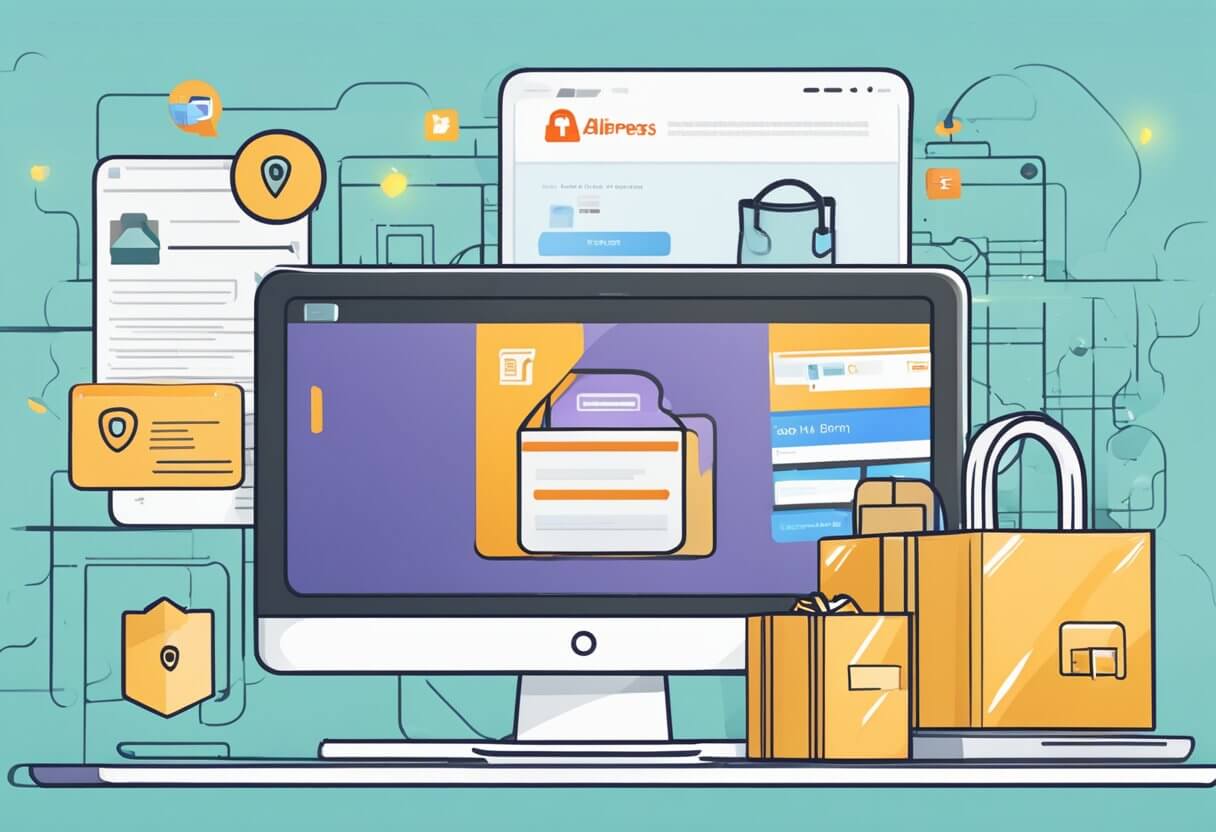
Online shopping opens up a world of products and deals that aren’t available locally. But any time you buy from an unfamiliar site, especially one based overseas, you may wonder – is it safe to order from AliExpress?
The short answer is yes, AliExpress is generally safe if you follow smart shopping practices. While the majority of sellers are legitimate, problems with counterfeits, shipping delays, and sketchy sellers happen. By understanding the platform and risks, reading reviews, and using buyer protection you can greatly minimize chances of issues.
In this detailed guide, we’ll cover everything you need to know about safely ordering from AliExpress as a first-time shopper.
What is AliExpress and How Does it Work?
AliExpress is a Chinese online marketplace owned by the Alibaba Group. It connects mostly China-based sellers with international buyers to facilitate direct retail sales.
Over 2 million sellers offer products across categories like:
- Consumer electronics
- Fashion
- Home goods
- Beauty products
- Automotive accessories
AliExpress works similar to eBay – sellers create listings for products which buyers can browse, purchase directly, and have shipped. Sellers handle sourcing, fulfillment, and distribution. AliExpress provides the platform interface and payment processing.
This model allows prices to stay extremely low compared to domestic retail, as sellers have lower overhead. But dealing with retailers halfway across the world also comes with potential risks.
Is AliExpress Legit and Trustworthy?
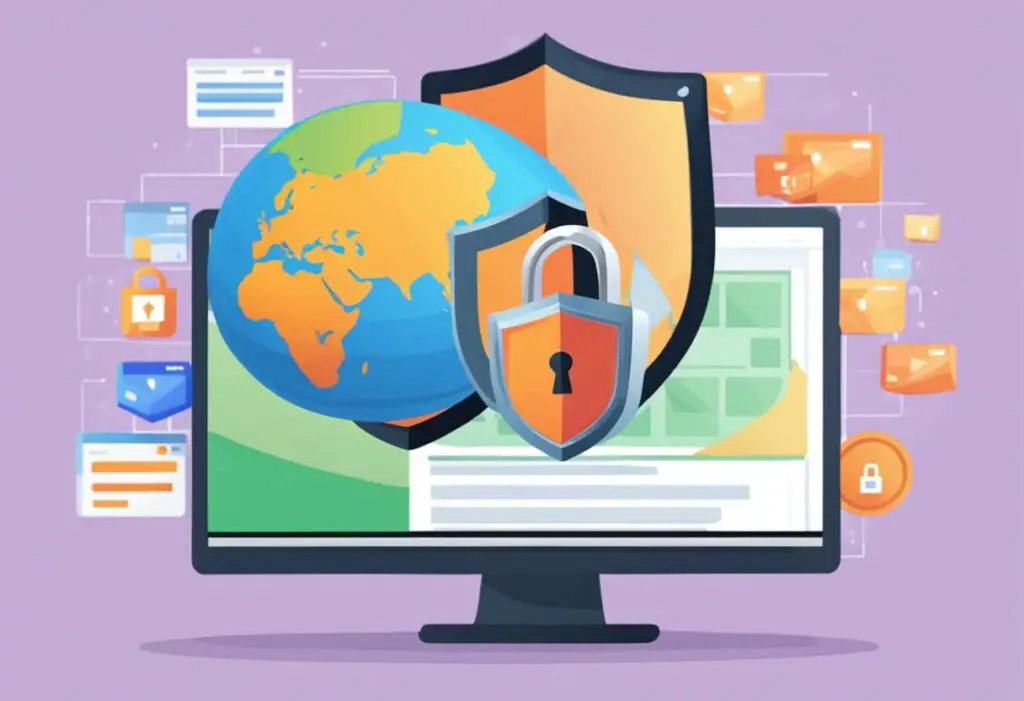
With cheap foreign goods comes reasonable skepticism. Is AliExpress a legit website and can you trust sellers?
The platform itself is 100% legitimate. After all, it’s owned by Alibaba Group, one of the largest public companies in the world.
However, AliExpress sellers are all independent third-party entities – the quality, reliability, and authenticity varies substantially.
Reviews and ratings help identify good sellers. You can’t expect Amazon-level customer service though. Communication and dispute resolution tends to take longer.
As long as you set proper expectations, you can absolutely find trustworthy sellers and score great deals on AliExpress.
What Risks Are There When Ordering from AliExpress?
While most transactions go smoothly, there are a few risks to watch for when ordering from AliExpress:
- Counterfeit products – Fake name brand goods slip through the cracks, either intentionally misrepresented or mistakenly shipped. This violates trademarks and is illegal.
- Inferior product quality – Without official brand oversight, manufacturing inconsistencies and defects occur. For inexpensive items it may not matter. But know there are no guarantees.
- Non-delivery – Items get lost or sellers fail to ship without notice. Shipping across the world introduces more transit hiccups.
- Brushers scam – Sellers create fake buyer accounts to inflate ratings and popularity of items that may be low-quality, defective, or fake. Hard to spot but raises chances of issues.
- Slow refund response – Sellers may be slow to respond to inquiries or absent when problems arise. AliExpress steps in after buyer protection window ends but process is tedious.
These risks sound concerning, but they’re comparable odds to any international online marketplace. We’ll cover how to protect yourself soon. First, let’s explain AliExpress’s buyer protection program…
Does AliExpress Offer Buyer Protection Against Scams?
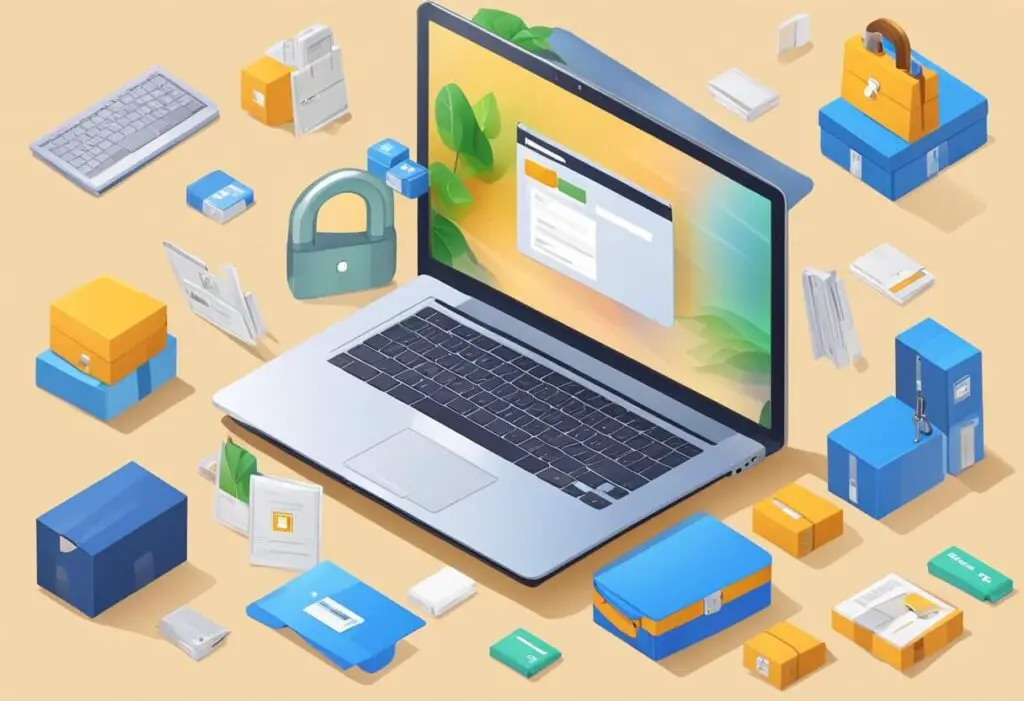
AliExpress understands cross-border shopping comes with added risks for buyers. That’s why they implemented a buyer protection program as a safety net.
Every order you place includes automatic buyer protection that covers certain situations, like:
- Item never arrives – File claim→full refund within 15 days
- Wrong or defective item – Return for full refund or keep for partial refund
This assurance makes it much safer for first-timers to shop on AliExpress without worrying about losing money.
Here is exactly how the AliExpress buyer protection and refund process works if you encounter issues:
- Contact the seller explaining your issue with the order. Provide relevant photos or details.
- If unsatisfied with seller’s response after 5 days, dispute claim directly with AliExpress by going to My Orders→Dispute.
- AliExpress steps in to review evidence and mediate discussion after 15 days without resolution.
- Final ruling made in buyer’s favor results in refund processed within 3-20 days typically.
While AliExpress often rules fairly, they tend to side with buyers more to prevent scam claims. Just make sure you dispute issues within the valid buyer protection window.
How to Safely Pay for Items on AliExpress?
Any time you buy from international sites, payment security rightfully raises eyebrows. Can you safely pay sellers on AliExpress without your financial data being compromised?
The answer is yes – AliExpress employs precautions to protect shoppers’ payment info and prevent fraud:
- Encrypted checkout via HTTPS protects entered credit card numbers and personal data in transit and at rest.
- Sellers never receive your actual credit card number or banking details – only AliExpress has access.
- Option to pay through secure intermediary services like PayPal provides additional layer of payment protection.
As long as you stick to digital payment processors within the AliExpress platform itself, it is safe to pay sellers. Never make direct bank transfers which lack fraud protection.
Now let’s get into helpful tips for identifying reliable sellers and avoiding problems…
Tips for Identifying Reliable Sellers on AliExpress
The best assurance when ordering from AliExpress comes from purchasing through highly rated sellers with longstanding positive reputations.
Here is how to analyze seller profiles and order histories to determine legitimacy:
- Check feedback % – Seeks sellers with 95%+ positive ratings. Anything under 90% raises red flags of unreliable service.
- Review buyer comments – Scan reviews, especially lower rated, to check specific issues buyers faced to identify risks.
- Analyze photo reviews – Reviews with images showing actual product condition and packaging lend more credibility to the accuracy of listings.
- Examine order totals – Number of orders and buyers indicate reliable fulfillment infrastructure and service. High volumes suggest established operations.
It takes patience sifting through seller profiles, but ultimately pays dividends towards successful purchases with minimal issues involved.
How to Avoid Counterfeit Goods and Listing Tricks?
Finding absurdly cheap prices on premium branded items like iPhones raises too-good-to-be-true alarms for savvy shoppers. But other counterfeit issues provide subtler tripwires.
Here are tips for spotting potential counterfeit listings:
- Avoid branded items altogether – Most name brand goods sold are fake without verified authorization. Find lesser known quality alternatives.
- Carefully examine photos – Look for inconsistencies, photoshopping, stock images, branding discrepancies that suggest doctored listings.
- Read detailed reviews – Users often scrutinize product quality against authentic versions plus deficiencies only noticeable first-hand.
- Question pricing rationality – Extreme price deviations from normal retail levels indicate hard-to-believe deals that likely disappoint in reality.
Sellers also misleadingly misrepresent item variations and pricing tricks in listings to bait switches at checkout. Here is how to avoid them:
- Read all listing details thoroughly before adding items to your cart and process checkout. Photos may depict related products to advertised items which differ when ordered.
- Understand pricing per item, qty, model taking into account shipping and totals that influence final cost. Called “penny shopping”, sellers attach low prices to valueless items variations to entice clicks.
- Beware too-good-to-be-true deals that lure shoppers through unrealistic pricing likely tied to tricks revealed after commitment. If deal seems impossible, it probably is.
Caution combined with review homework filters out most suspect sellers. For added assurance, check order delivery protections.
Understanding AliExpress Shipping Times and Costs
One common gripe about buying from Chinese e-commerce sites revolves around shipping unknowns. How long will my AliExpress order take to deliver? And what surprises await with customs and taxes?
Here is a breakdown of what to expect after placing orders:
- AliExpress Standard – Free basic shipping to most countries takes 15-45 days
- Expedited Premium – Faster 7-15 day service grades for added fees
- ePacket – Reliable 7-20 day small package option to North America/Europe
- FedEx/UPS – Pricer express major couriers with tracking (5-10 days)
Select item location carefully – Products shipped from China take longest (up to 2 months), while optional local warehouses can shorten to a few days.
Be sure to account for any potential customs duties & import taxes as well which increase final costs. Rules differ country to country, so check your specific rates.
While waiting weeks for some trinket tests shopping patience, it allows bargain basement pricing. Prepare order tracking so expected delivery windows don’t escape memory!
Is Your Privacy Safe When Shopping on AliExpress?
Shared financial, identity, and behavioral data represents the accepted toll booths for access into e-commerce. But considerations intensify when that info travels overseas.
So how securely does AliExpress handle your private shopper profile and purchase details?
According to AliExpress’s privacy policy, they transmit and store all user data securely in servers worldwide adhering to industry best practices.
And typical of all online retailers, certain essential user details get shared with specific third-party affiliates to enable business operations:
- Sellers receive necessary identity info to process orders
- Payment partners gain billing data to facilitate transactions
- Marketing channels obtain behavioral flows for targeting and analytics
- Logistics access needed delivery details
Not the most comforting realities perhaps. But privacy aspects remain on par with Amazon, eBay, Walmart and peers. No verified reports exist of AliExpress privacy violations or data breaches.
As always, shoppers uncomfortable with default data sharing may limit exposures by:
- Using unique complex account passwords
- Providing minimum inputs in profiles
- Avoiding login via social accounts
- Paying through intermediaries like PayPal
How to Get Refunds and Resolve Disputes if Problems Arise?
Even shops with glowing reviews sometimes disappointment reality. Damaged items, inaccurate listings, and delayed orders represent some issues that can surface.
Thankfully AliExpress built a dispute resolution process into platform transactions to remedy buyer problems:
Step 1️⃣ – Attempt to resolve directly with seller
Good-faith efforts resolve most grievances amicably through direct discussion and compromise.
Step 2️⃣ – Escalate unsettled claims to AliExpress within Buyer Protection window
If unsatisfied with seller response, register a dispute with AliExpress within transaction coverage period for further arbitration.
Step 3️⃣ – Provide AliExpress dispute processing agent with order details
Submit photo evidence, documentation, explanation of desired outcome for compensation consideration to disputes agent for ruling.
Step 4️⃣ – Receive AliExpress judgement and refund (if warranted)
Based on review of case merits, AliExpress issues a final decision on any settlement. If ruled in favor, process refund.
Step 5️⃣ – Last resort claims against payments provider
For especially egregious seller misconduct, buyers can initiate fraud complaints to credit card companies or PayPal as further recourse.
While most AliExpress orders proceed without incident, it offers peace of mind knowing multiple venues exist for reconciling problems if the need arises.
Recap – Is AliExpress Ultimately a Safe Place to Order From?
Considering its foreign operations and pricing model disruptions, AliExpress earns high marks for global retail accessibility paired with buyer protections:
- Secure platform – Industry-standard encryptions make transactions safe guarded against fraud.
- Sufficient dispute resolution – Allows methodical escalation steps to resolve most order problems reasonably.
- Extensive buyer protection – Significantly reduces risks when backed by money-back delivery/item quality guarantees.
- Massive product selection – 2 million+ seller inventory across virtually every consumer category invites one-stop variety shopping.
However, buyers proceed best understanding lingering risks that persist. Not every purchase sees perfect outcomes. Readiness to document issues for raising disputes remains key.
Fundamentally, AliExpress provides access to affordably priced goods in a sufficiently protected manner – if aligned with realistic expectations. Just apply smart selective purchasing practices.
Hopefully this guide covered everything you need to know about safely giving this global marketplace a try! Let the worldwide deal hunting commence…



